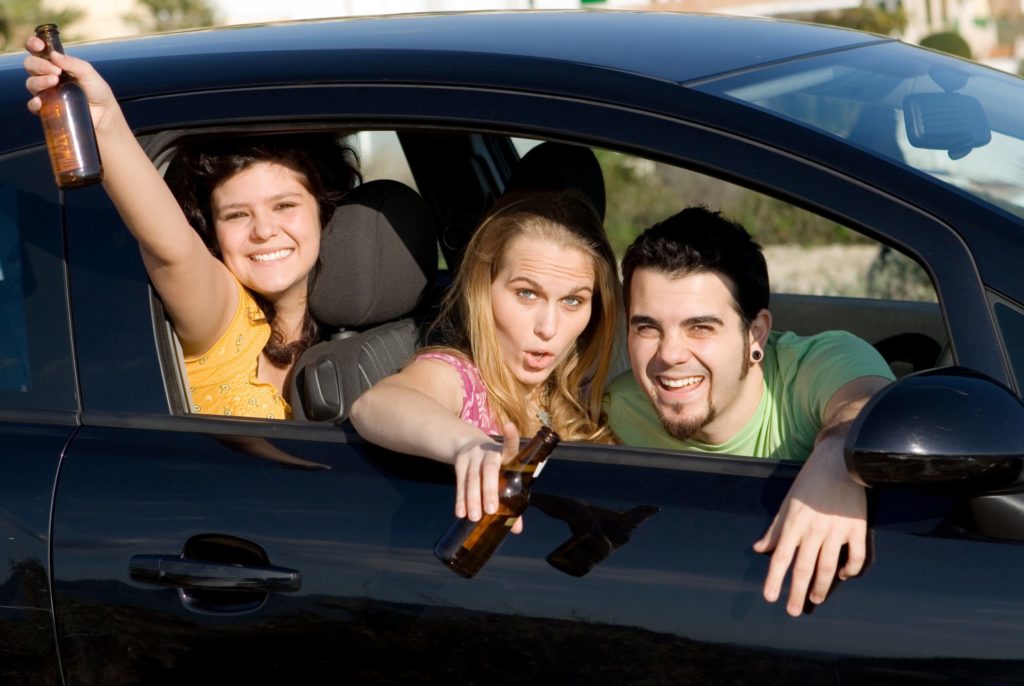Graduation is an exciting time in the lives of teens as well as in the lives of their parents. Like other important rites of passage, such as going to prom or getting a driver’s license, reaching the milestone of completing high school or college is often accompanied by intense feelings of excitement. For many teens, these feelings are also accompanied by the use or abuse of alcohol or other drugs. Although the teen years are marked by strong peer pressure, as a parent you still have quite a bit of influence on your teen. In fact, throughout the life of your child and well into his teen years, you have been setting an example for what is considered acceptable behavior even when you weren’t aware of it. Parents’ drinking habits—especially how much and how often they drink—influence a teen. If parents are quick to turn to alcohol to unwind at the end of every day, or if they inevitably use alcohol to calm down when they are feeling stressed, they may be giving teens the message that alcohol is the best coping mechanism for stress. If they drink to excess and think it’s amusing or harmless, they are communicating this message to their teens. In particular, parents who use alcohol in high-risk situations are sending a dangerous message to their children. Examples of this include drinking heavily while driving a car or operating a boat. Parents who drink heavily may be inclined to purchase alcohol for their teens and their friends, particularly for memorable occasions such as graduation. If you believe alcohol isn’t dangerous, you may feel that you aren’t doing your child any harm by giving him or her a drink or two in honor of graduation or other accomplishment. This is both illegal and potentially dangerous. If a teen should drive drunk and sustain an injury, adults who supplied the alcohol are considered responsible. Alcohol that you keep in your home should be considered off limits to underage drinkers at all times. Avoid letting your teen attend parties where alcohol is served. Teens who don’t typically use alcohol may be at increased risk of abusing alcohol during graduation season. In particular, teens who have a family history of substance abuse or who may be experiencing depression or other problems may suddenly start drinking regularly as their school years come to a close. As a parent you may feel that you can’t be as involved in your teen’s life as you used to be. Your teen spends more and more time with her friends, but you are still an important influence in her life. Stay involved in your teen’s life and remain open and interested in what’s going on. Celebrating Graduation Without Substances There are plenty of ways to celebrate milestones and accomplishments without using mind-altering substances. Your teens and their friends can enjoy outdoor activities such as swimming, biking or boating without drinking. They can socialize and listen to music, dance and play games, all without the use of chemicals. Best of all, when their graduation celebrations are enjoyed sober, they will have lasting and clear memories of good times spent with their friends. Parents who believe that significant events should always include drinking may need to examine their own relationship with alcohol. If the thought of celebrating life’s milestones sober sounds unnatural to you, you may need to get help for your own drinking. Some teens are able to transition smoothly into adulthood and eventually will be able to use alcohol responsibly, but during the teen years, they are too young. If you think your teen may already have a problem with alcohol or drugs, don’t second guess yourself. Problems with alcohol, such as drinking to excess or drinking more and more, may often be signs of a serious problem that isn’t going to go away. If this is going on, help him or her acknowledge and address the problem. Your influence on your teen will have lasting effects on his life. Encourage your teen to have a sober and memorable graduation.






